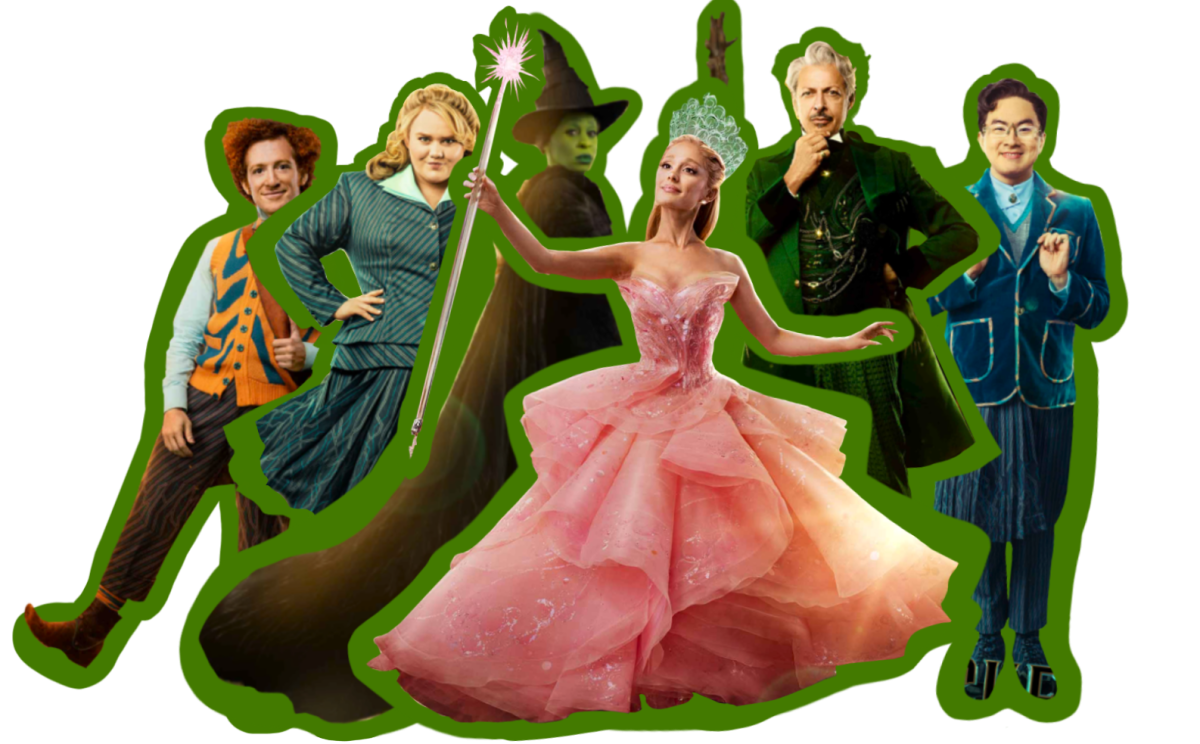The movie “Wicked,” adapted from the classic musical, premiered in movie theaters on Nov. 22 in the United States. This film was directed by Jon Chu, starring actresses Cynthia Erivo as Elphaba and Ariana Grande as Glinda. The sequel is planned to be released in November 2025.
Adapting musicals into movies isn’t a new concept. In fact, many classics have already been tried and tested. Some well-known ones include “Les Misérables,” “Mamma Mia!” and “The Phantom of the Opera.” According to theater teacher Kristen Lo, the movie adaptation provides audiences with a greater access to the musical theater world.
“I appreciate all forms of musicals or plays that go to some form of film, because it gives access to a wider community,” she said. “People who can’t pay $200 for a ticket to go see ‘Wicked’ on Broadway will be able to see ‘Wicked’ in a movie theater or stream (it) at home.”
Originally, the idea of a film version was pitched and approved in 2012, with an initial planned release in December 2019. After various delays, the directors announced a Nov. 27 release date for the first installment. However, the film was released on Nov. 22, five days earlier than originally planned. The plot of the “Wicked” movie adaptation is based on Gregory Maguires’ 1995 novel “Wicked,” characters from L. Frank Baum’s 1900 novel “The Wonderful Wizard of Oz” and, of course, Steven Schwartz’s Broadway musical, “Wicked.” The story takes place in the Land of Oz before continuing through Dorothy’s visit to Kansas. It tells the story of two Shiz University students, Elphaba and Glinda, and their unlikely friendship, ultimately leading up to how they became the iconic Wicked Witch of the West and Glinda the Good.
The main difference between the movie adaptation and the musical format is the component of live audiences, which can be a vital factor in an actor’s performance. According to Lo, the format of a pre-recorded movie and lack of an audience can impact an actor’s technique.
“If you are acting in Spangenberg, you have to be so much bigger (because) you are trying to throw back 900 seats and be that big with your emotions and character,” she said. “But, in film, you’ll have a camera six inches from your face, and it can record the littlest eyebrow raise. Acting on a stage has to be so much bigger.”
Theater student sophomore Elena Arocha also emphasizes the differences between the live audience and film format.
“There is definitely an advantage when it comes to filming and the audience’s experience, because (the audience) see the actors head-on,” she said. “In the movie, we’ll be seeing multiple camera angles and in-depth emotion conveyed.”























